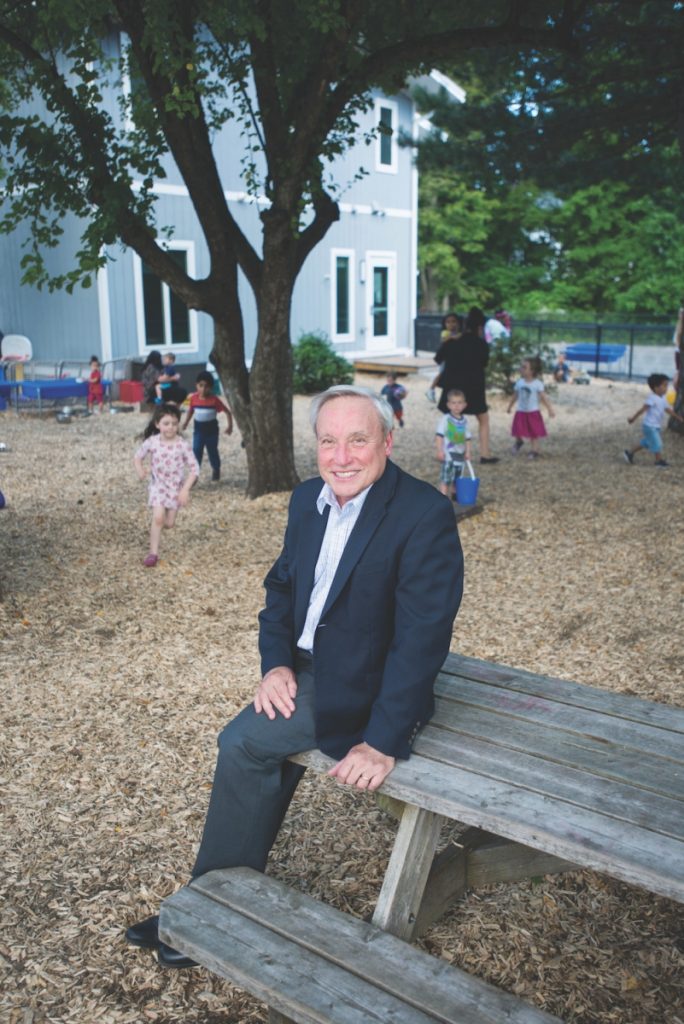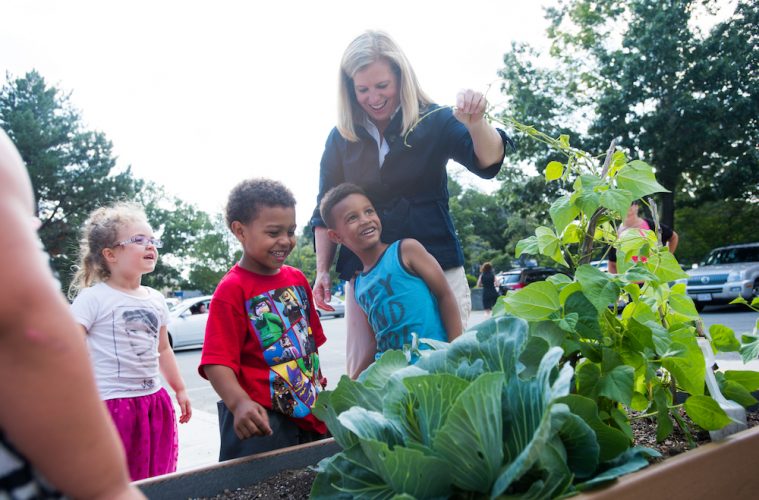Essex County Community Foundation (ECCF) CEO Dave Edwards and vice president for philanthropy Beth Francis easily generate enthusiasm for their nonprofit agency. One conversation with the two of them is bound to result in further engagement on the listener’s part. Why? Because what they do is essential, exciting, and effective.
One of more than 750 community foundations across the country, ECCF plays a major role in directing philanthropic funds toward the betterment of Essex County. Described by Edwards as “charitable conduits,” their mission is to help donors create charitable funds, which are then invested into the community. As Edwards puts it: “We are family of philanthropic funds with a bigger mission to improve the quality of life in the 34 cities and towns in Essex county. We, and our donors, want to have impact where we live, work, and raise families.”
Currently, ECCF supports 1,200 area nonprofits and establishes 10 to 15 new funds each year. The thrust of their work is to gather assets, make grants, and provide community leadership. “Everything falls into three buckets,” explains Francis. “The first is inspiring philanthropy. We manage 180 funds and help donors decide where to put their dollars to have the greatest impact.” Second, they provide Essex County nonprofits with resources and grant monies from donors’ funds and ECCF discretionary funds. And last, they help strengthen nonprofits, which happens through myriad means—one example is their annual Institute for Trustees event, during which board members from all over New England convene for a daylong training to learn how to be more effective, because an effective board strengthens the nonprofit it serves.

ECCF CEO Dave Edwards at Beverly Children’s Learning Center
Presently, ECCF is focused on three primary initiatives. The first is Impact Essex County, a long-term strategy, the first phase of which was to identify strengths and weaknesses in the county. Having gathered that information, they launched a new website (impactessexcounty.org) to “tell the story of Essex County, where we shine and where we struggle.” They are in the process of analyzing 100 indicators to determine the top five most pressing issues; that analysis will narrow their area of focus. Then, the board will decide on one or two initiatives around which they will engage advocates for change.
One example is the opioid crisis. “Imagine, if we could, with a collective impact approach, bring people together around the table—our treatment centers, police stations, prevention programs, recovery providers, legislators—and really figure out how we can work together and what kinds of systems or behaviors we might need to change … we could reduce the amount of opioid deaths in our county,” says Francis, adding that there is no other countywide initiative or any other organization that has taken this broad approach to addressing the problem.
Another of ECCF’s current initiatives is NextGen, which works with 35- to 50-year-old next-generation philanthropists to teach them how to be strategic donors in anticipation of monies they will inherit. ECCF takes a fun social approach to engaging younger donors that keeps the time commitment to a minimum, as they tend to be busy people with careers and families. An example engagement is their recent Paella Party, during which cocktails and dinner were served and an educational activity examined shared values around giving. Similarly, they partnered with Shore Country Day School to host New York Times columnist and author of The Opposite of Spoiled Ron Lieber. The message: You spend, you save, you give. Additionally, they offer Lunch and Learn socials during which they drive donors around to different nonprofit organizations to give them a sense of what’s out there and where they might want to target their funds.
Francis and Edwards are particularly excited about a brand-new initiative that got off the ground with support from the Barr Foundation—the largest private foundation in the state—which is looking to expand its reach beyond Boston proper. Toward that end, it is running a pilot program that focuses on the creative arts, and ECCF is working with it to develop a Creative County Arts Initiative. They are in the process of determining the strengths and challenges in the arts community to determine where to direct funds to develop a more creative county. “It’s nice to see philanthropic capital coming out of Boston into the North Shore and Merrimack Valley,” notes Edwards. “If we are successful, they will give us $500,000 to re-grant to organizations, artists, communities, and wherever our group decides the most interesting projects are [happening]. We will have some substantial money to infuse into the arts community.”
Another arena generating excitement is ECCF’s exponential growth over the past two years—from the $26 million that was under management two and a half years ago to the $65 million in charitable assets they oversee today. “We are really growing fast, and more and more people are coming to us to help them figure out how to be better philanthropists,” says Edwards, who attributes the growth, in part, to the refocusing of their efforts on the donors rather than strictly on nonprofits. The changing face of ECCF looks at both sides of philanthropy—the donors and how they are inspired to give and the impact of that giving.
Of course, behind ECCF’s success are the many people to whom community health and well-being matter. Foremost among them stand Edwards and Francis. After 20 years in higher education, Edwards pursued a career in community philanthropy to help people get connected with organizations working on issues they, as donors, are passionate about. “I really believe in the power of giving where you live,” he says. Francis has been in the social services sector for 25 years, but is relatively new to ECCF. “What I get excited about in this role,” she says, “is the donor side—the power they have to effect real change. I enjoy helping donors achieve their charitable goals … you can really attack issues that cross the entire county.”
Every year, ECCF provides capacity-building grants to local organizations. The 2017 Fund for Excellence in Essex County Grant Award recipients were:
• Building Bridges Through Music, Lynn
• Groundwork Lawrence, Lawrence
• Ipswich River Watershed Association, Ipswich
• Lynn Shelter Association, Lynn
• Plummer Home, Salem
• House of Seven Gables Settlement Association, Salem
• Merrimack River Watershed Council, Lawrence
Essex County Community Foundation

